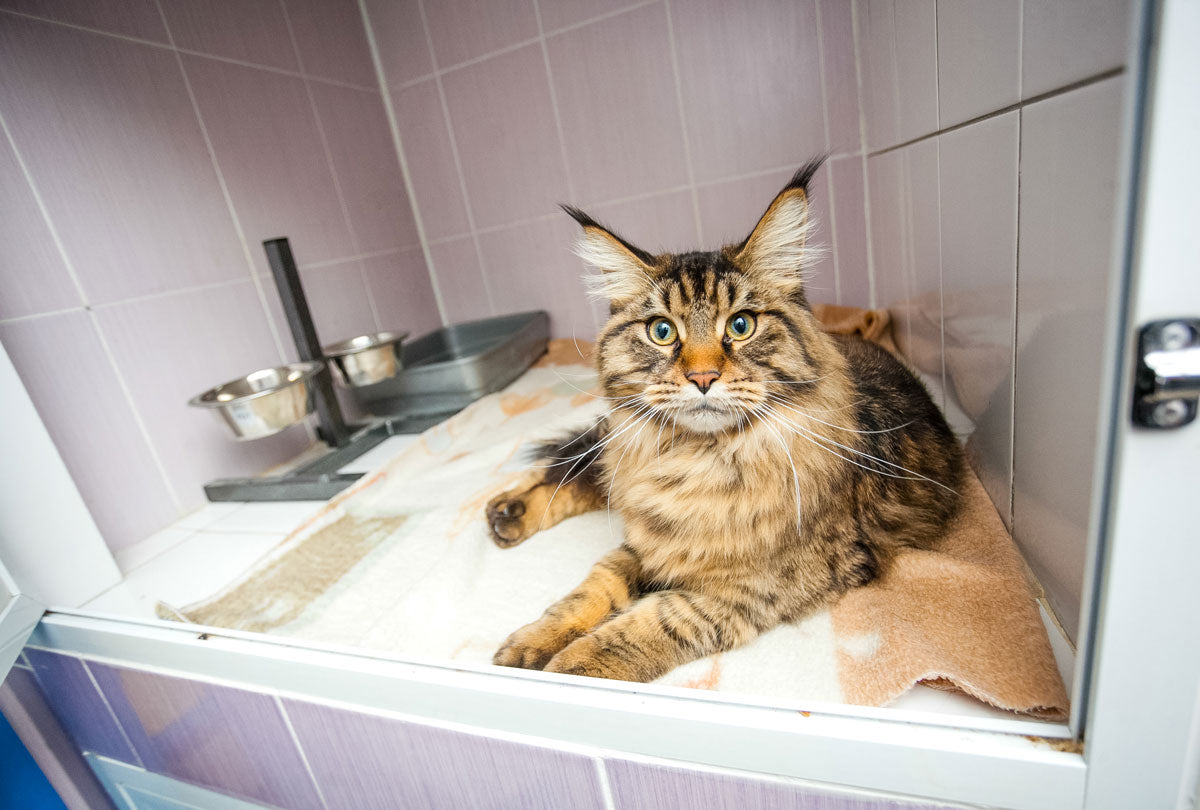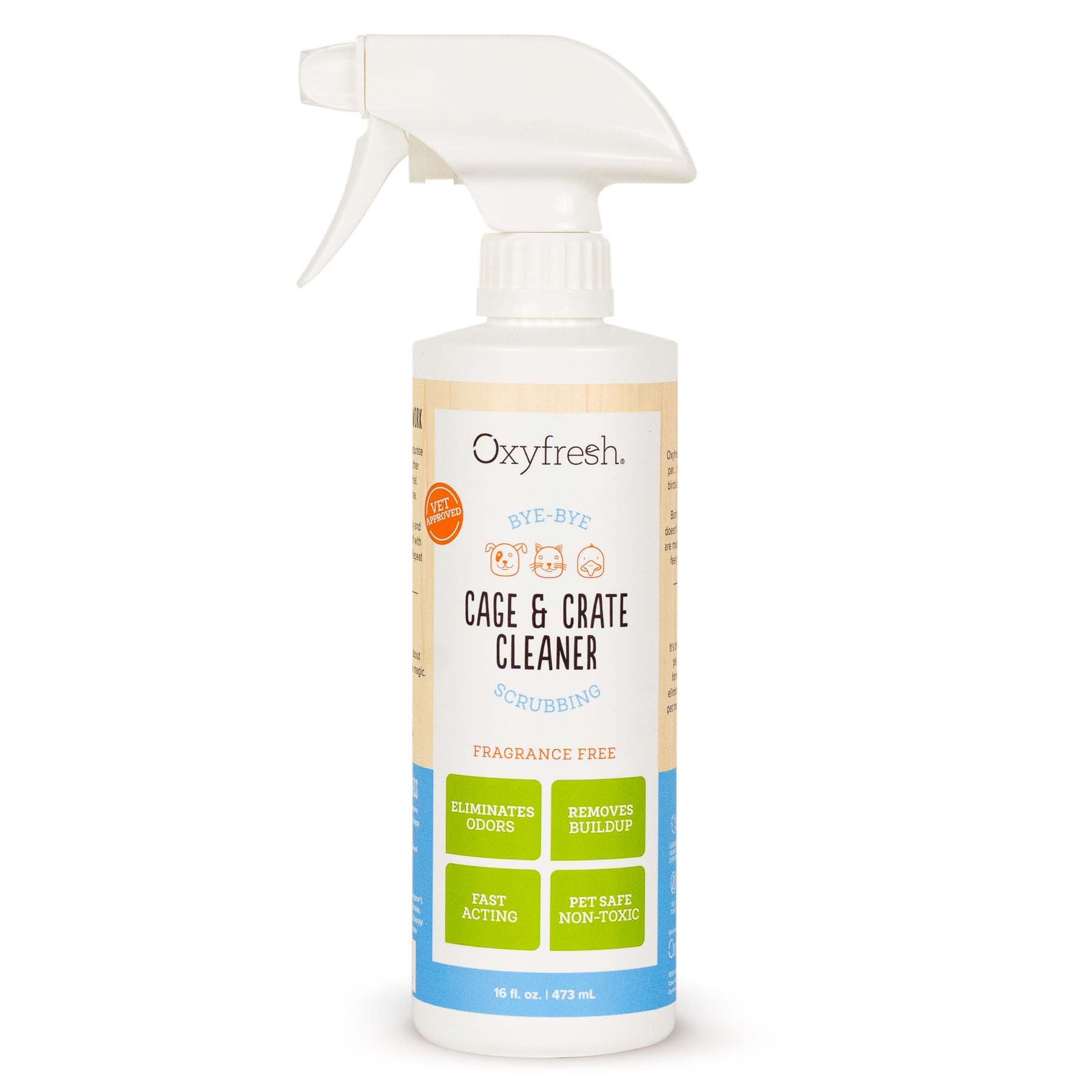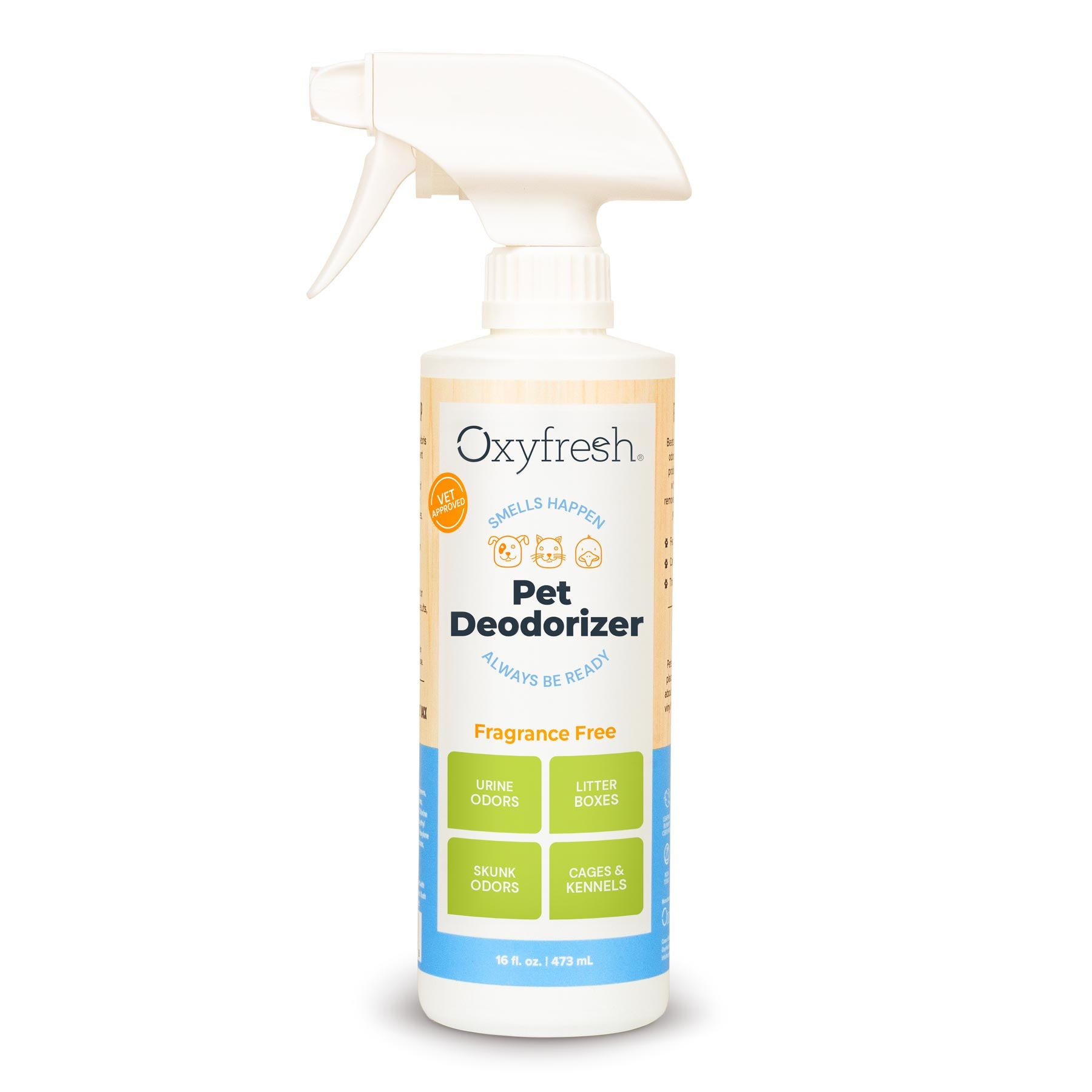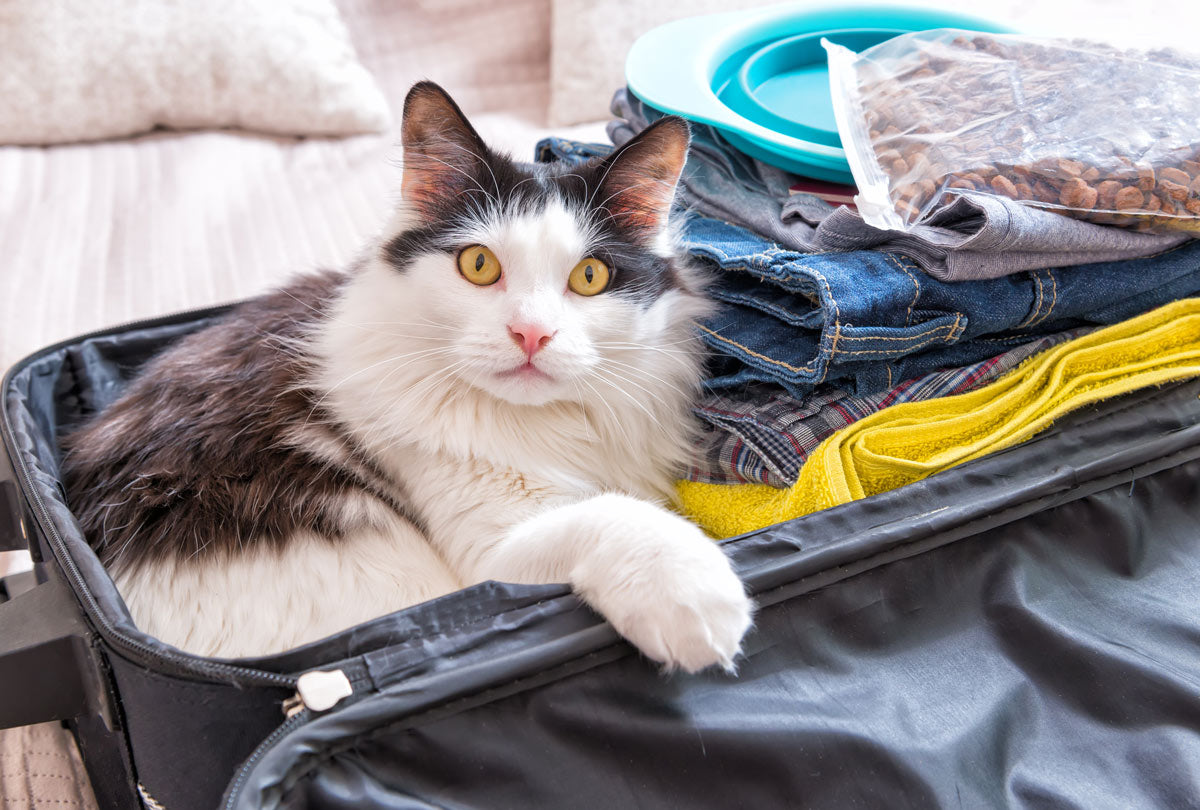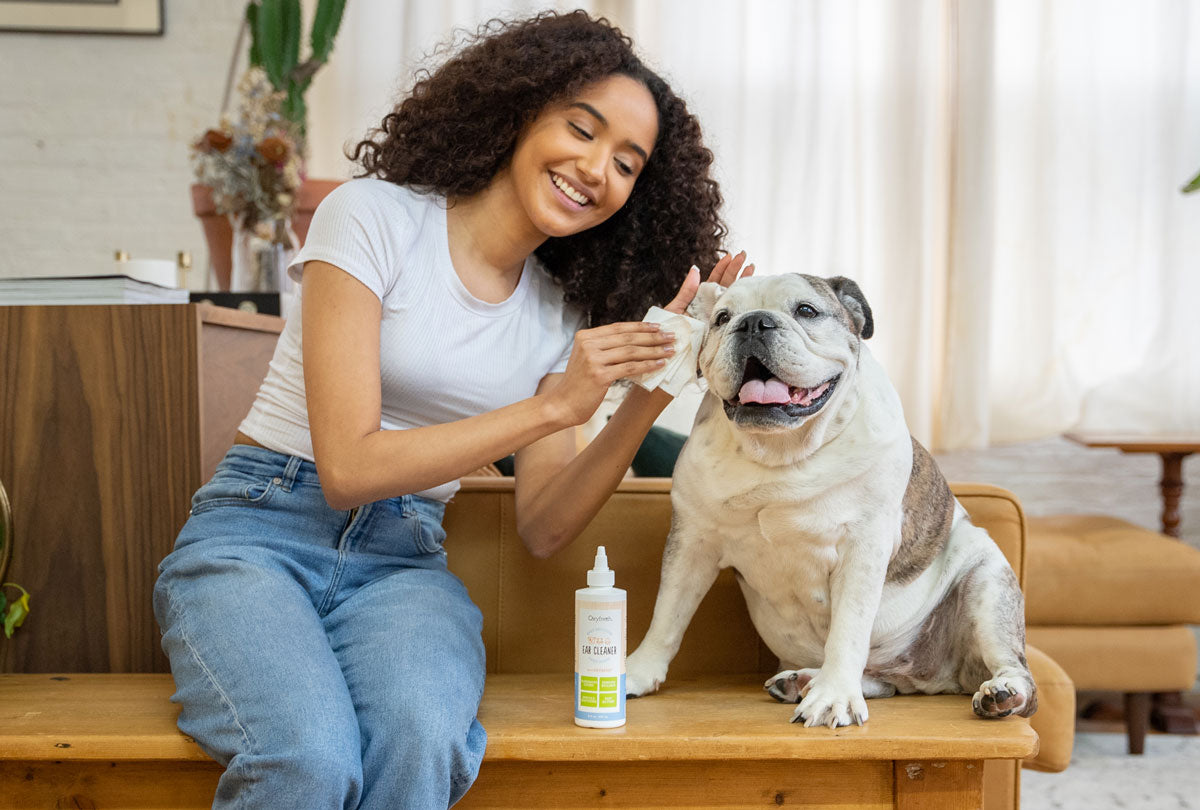Hack, hack, cough. Is your cat suddenly coughing a lot? Don’t be too quick to blame an epic hairball. If you’re wondering if cats can get kennel cough, the answer is yes, although this infection is much rarer in cats compared to dogs.
Here we’re laying out everything you need to know about how to detect and treat cat kennel cough and keep your furball safe during the busy holiday boarding season.
What Is Cat Kennel Cough?
Kennel cough is a respiratory infection caused by the highly contagious bacterium Bordetella bronchiseptica. (Don’t worry – we won’t quiz you on the spelling.) This is the same bacterium that causes kennel cough in dogs.
Because these bacteria cause inflammation of the larynx and windpipe, kennel cough gets its name from the raspy, dry cough that often develops in dogs and cats that get this infection.
If you’re a dog person (don’t tell the cat), you’re probably familiar with Bordetella vaccinations, which protect dogs against kennel cough. Although there is a vaccine approved for use in cats, it’s usually not administered, or even carried by the vet, as kennel cough in cats is rare and cases tend to be very mild. Additionally, cats are naturally more resistant to Bordetella. (See, cats really do rule!)
How Does Kennel Cough Spread?
Kennel cough spreads via coughing or sneezing, direct contact with other animals, and sharing things like toys and water or food bowls.
Because cats are more anti-social compared to dogs (Give me the couch versus the dog park any day), they’re less likely to contract kennel cough through outside contact with other animals. Instead, kennel cough in cats is usually spread in shelters, boarding facilities, and pet stores, especially if the ventilation of the facility is poor.
Kennel cough can also spread via the hands, so always wash up with soap and water after petting other animals or volunteering at a shelter.
Can cats get kennel cough from dogs?
Typically, cats will get kennel cough from other cats. Although not as common, cats CAN get kennel cough from dogs and vice versa. Cats that travel a lot, hang out with other animals, or like to go exploring outdoors are at higher risk of cat kennel cough, but again, this infection is rare.
How Long Does Kennel Cough in Cats Last?
Fortunately, kennel cough in cats only lasts around 7–10 days. However, if your cat develops pneumonia after getting kennel cough, that will take longer to treat and may keep your feline under the weather for two to three weeks.
Cat Kennel Cough Symptoms
Although we associate kennel cough with a dry, hacking cough in dogs, this isn’t always the case with cats. While some cats will have this distinct cough, they’ll likely display other symptoms of an upper respiratory infection.
- Coughing (mild or hacking)
- Gagging or retching
- Eye or nasal discharge
- Sneezing
- Lethargy
- Decreased appetite
- Conjunctivitis (cat pink eye)
If coughing is one of your cat’s symptoms, it’s best to call the vet for guidance and possible evaluation, as other causes of coughing in cats can be serious, such as asthma, heart disease, and parasites.
How to Treat Cat Kennel Cough
For healthy adult cats, kennel cough is usually very mild, comparable to a simple head cold in humans. In these cases, a little TLC from your cat’s favorite person (you), and kennel cough can run its course right at home without needing antibiotics or medical intervention.
Kittens, senior cats, and cats with weakened immune systems are more at risk for severe illness from kennel cough, like pneumonia. These cases call for vet intervention, and treatment may include antibiotics, increased fluids, immune system supplements, cough suppressants or expectorants. (Never raid your own medicine cabinet to treat your cat ... some human medications are toxic to cats.)
If your cat is unresponsive to treatment, or if this is another infection in a string of respiratory infections, your vet may recommend diagnostic testing with bloodwork, x-rays, or swabs of the throat/nasal area.
Tips to make your furball feel better at home
- Make sure your kitty has a quiet, relaxing spot to rest that’s all their own, away from other pets, to avoid transmitting kennel cough through the whole pack.
- Always give your cat access to fresh drinking water.
- If your cat’s appetite is poor, offer soft foods or favorite meaty treats. Microwaving your cat’s food will make the smell stronger and entice them to eat.
- Run a humidifier in your home to help with your cat’s stuffy nasal passages. Use plain water – no essential oils, please. Many essential oils are dangerous to cats.
- Chill out with your cat in a steamy bathroom to help them breathe better.
- Keep your cat’s bedding, dishes and litter box clean.
Should I Board My Cat When Holiday Traveling?
Should I board my cat? This is not a decision to take lightly, and not a decision to make at the last minute. The truth is cats love their home territories and their regular routines and will fare much better if you have a trusted cat sitter or friend come into the home versus taking them to a boarding facility.
No matter how posh and pampurring a facility is, it can still be a scary experience for cats. There are many licensed pet sitters online, and oftentimes, vet techs are willing to cat sit. Ask around at your veterinarian‘s office.
Tricks for selecting a cat boarding facility
If your circumstances require you to board your cat versus having a pet sitter visit your home, here are some tips to make sure your cat is in good hands.
- Request a tour. If this is refused, it’s a red flag. If you are allowed a tour, look at the cages. Are they roomy and multi-level or cramped and one-level? Do the staff members seem like genuine cat people?
- Use your nose. Does the facility smell strongly of cat pee and poop? Not a good sign of a well-run facility. The place should also have good ventilation.
- Inquire about the facility’s veterinarian. Do they have someone designated to care for a kitty who gets sick?
- No dogs allowed. A facility that’s cats-only is ideal, as barking can stress out cats.
- Attention, please. Will your cat be getting plenty of attention with daily brushing and play time?
- Ask around. Ask your vet for recommendations on cat boarding and read reviews of the place online.
Psst ... Be Sure to Use Respiratory-Friendly Cat Cleaning Products
Using chemical-filled, fragrance-heavy cleaning products can make a cat’s respiratory symptoms worse, especially if they’re dealing with cat kennel cough. (We see you spraying that air freshener around like it’s an Olympic sport.)
To keep your home fresh and clean, without fragrance coverups, get your paws on Oxyfresh Cage & Crate Cleaner. Designed with sensitive pet immune systems in mind, this scent-free, all-purpose cleaner makes cat cleanup a breeze, from carpets to the carrier to the litter box and beyond!
- Whoa, that’s fresh: Only Oxyfresh cleaning products have the power of proprietary Oxygene® to neutralize odors right at the source. It’s the cleaner the litter box never saw comin’!
- 100% non-toxic: Free of bleach, alcohol, fragrances, dyes & parabens ... you still have to buy it, though. It’s not, like, free, free.
- Bye-bye scrubbing: Breaks down messes in minutes. Just spray and wipe away. No elbow grease required.
- Made in USA: All the patriotic cats will be purring for this high-quality, USA-made pet cleaner.
If your cat will be home for the holidays, or you’re dealing with kennel cough roaming in your pack, keep things fresh from head to (mistle)toe with a little help from Oxyfresh Cage & Crate Cleaner.
Cheers to a season of good health and cat snuggles!

